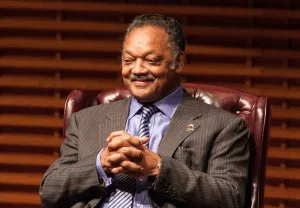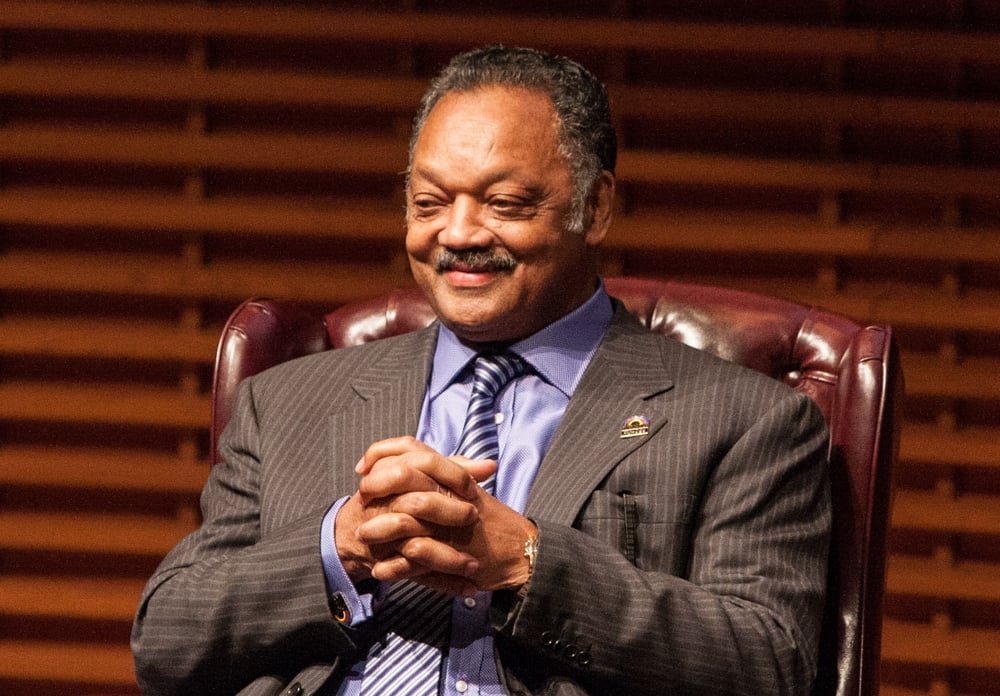CEMEX Auditorium was buzzing on Wednesday evening as a crowd of over 450 people came to hear civil rights leader, Baptist minister and former presidential candidate Jesse Jackson Sr. and Elaine Brown, the first female chair of the Black Panther party, speak at the first of an installment of events on the Civil Rights Movement.
Jackson, who worked closely with Martin Luther King Jr., reflected on his time during the Civil Rights Movement and addressed present-day struggles.
He explained the discrimination in his childhood, from not being allowed at the front of the bus to being forbidden from using a public restroom. Jackson detailed the 246 years of slavery in the United States, reminding the audience, “these are real dates.”

Jackson later turned his attention to the status of civil rights today and the work still to be done. As an advocate for equality and social justice, he encouraged students to look into their own lives and what could be fixed – specifically mentioning student loans and his student loan debt and credit card forgiveness proposal.
“You will be the leaders, for better or for worse – probably better,” Jackson said, calling on students to take initiative.
Reflecting on how far the country has come since the civil rights movement of the 1960s, Jackson focused specifically on the election of Barack Obama as president in 2008.
“I was weeping because of the joy of the moment. We won the big one,” Jackson said. “I wished Dr. King and all those who made it possible to get here could see Obama become president.”
“Those people aren’t here because they paid the ultimate price,” Jackson said. “[It’s] a fight that is not over.”
Later, Brown discussed her time with the Black Panthers Party and how she considered herself a part of a “freedom movement.”
“Before joining the Black Panthers, I was blind to what needed to be done,” Brown said, crediting the Black Panthers for making her aware of the problems and giving her an outlet to advocate change.
She asserted that there is a need for change again today, citing problems with today’s prison systems. Unlike her era, however, she stressed that now is not the right time for any mass movements.
Both speakers agreed that the younger generation needs to be aware of what’s going on in order to find out what needs to change.
“There’s room in the struggle for you,” Jackson said in his closing statement.
The event was the first installment in a series on the Civil Rights Movement sponsored by various organizations, including the Black Community Services Center, the Black Student Union, the Haas Center for Public Service and the Stanford Department of History.
“Tonight is a historical event,” said Jan Barker-Alexander, director of the Black Community Services Center. “I’m short on words, which people know I never am. For me, this is personal. These two icons made me realize, ‘I am someone.’”
The crowd was equally as moved by the event, with one audience member telling Jackson, “I voted for you in ’61. I wore your pin!”
“This panel discussion was inspiring,” said one Stanford student during the comment period. “One of the best in my four years at Stanford.”
Contact Katherine Carr at kcarr2 ‘at’ stanford.edu.
